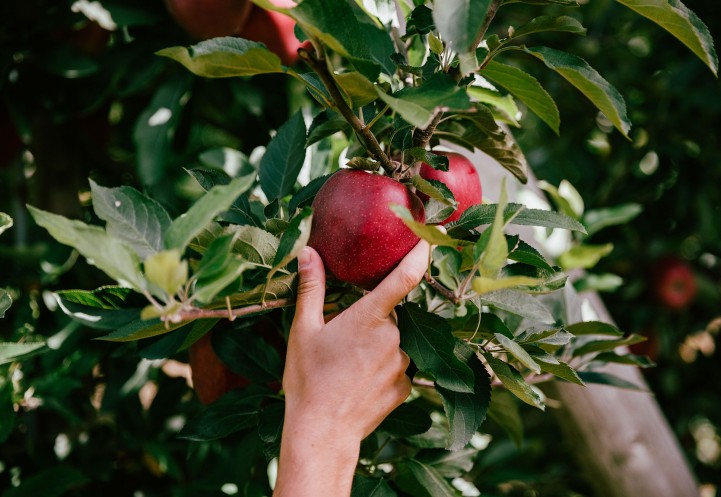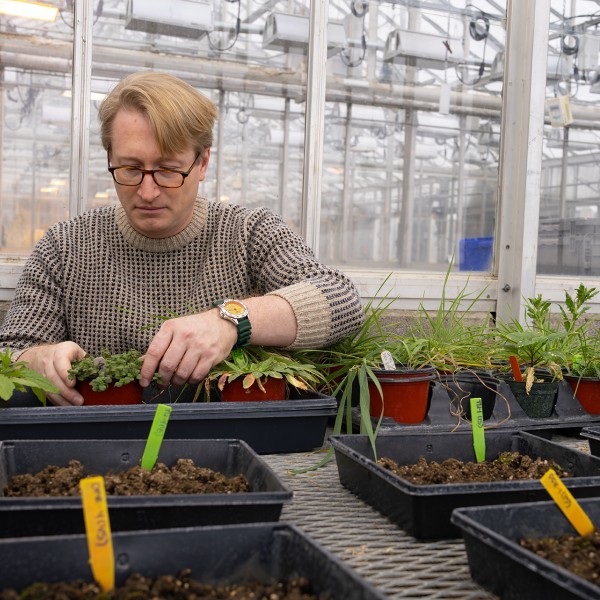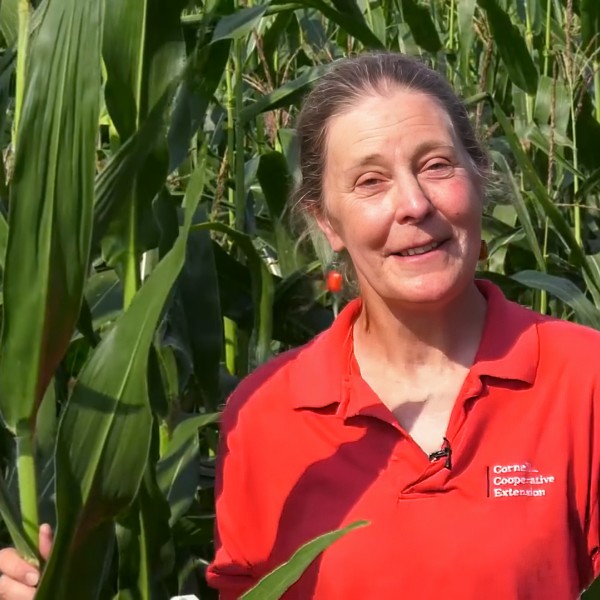News from the School of Integrative Plant Science
Highlights of our research, outreach, and educational activities
News
Apple scab, caused by the fungus Venturia inaequalis, is one of the most economically devastating diseases facing apple growers in the Northeast. Managing it has long depended on regular fungicide applications—and for many growers, that means...
News
At high densities, white-tailed deer inhibit growth of trees but increase the overall diversity of smaller plant and weed species, according to a long-term study published Dec. 23 in PLOS One. Twenty years ago, Cornell researchers established...
Field Note
Jonathan Chai ‘24 worked for two years as an undergraduate research assistant in the lab of Robert Raguso , professor of neurobiology and behavior. Raguso’s lab made the first discovery that insects are attracted to plants as much by humidity as...
News
After almost 50 years at Cornell – from an undergraduate student to a widely respected steward of Cornell’s land grant mission – Margaret Smith has been elected professor emerita. Smith came to Cornell in 1974 and earned her bachelor’s (’78) and...
Field Note
In 2025, evidence-based turf solutions from Cornell’s Bluegrass Lane research center and field sites across New York advanced environmentally sound athletic field and golf course management. The turfgrass program at Cornell University continues...

We openly share valuable knowledge.
Sign up for more insights, discoveries and solutions.
Please enter a valid email address to subscribe to the newsletter.














